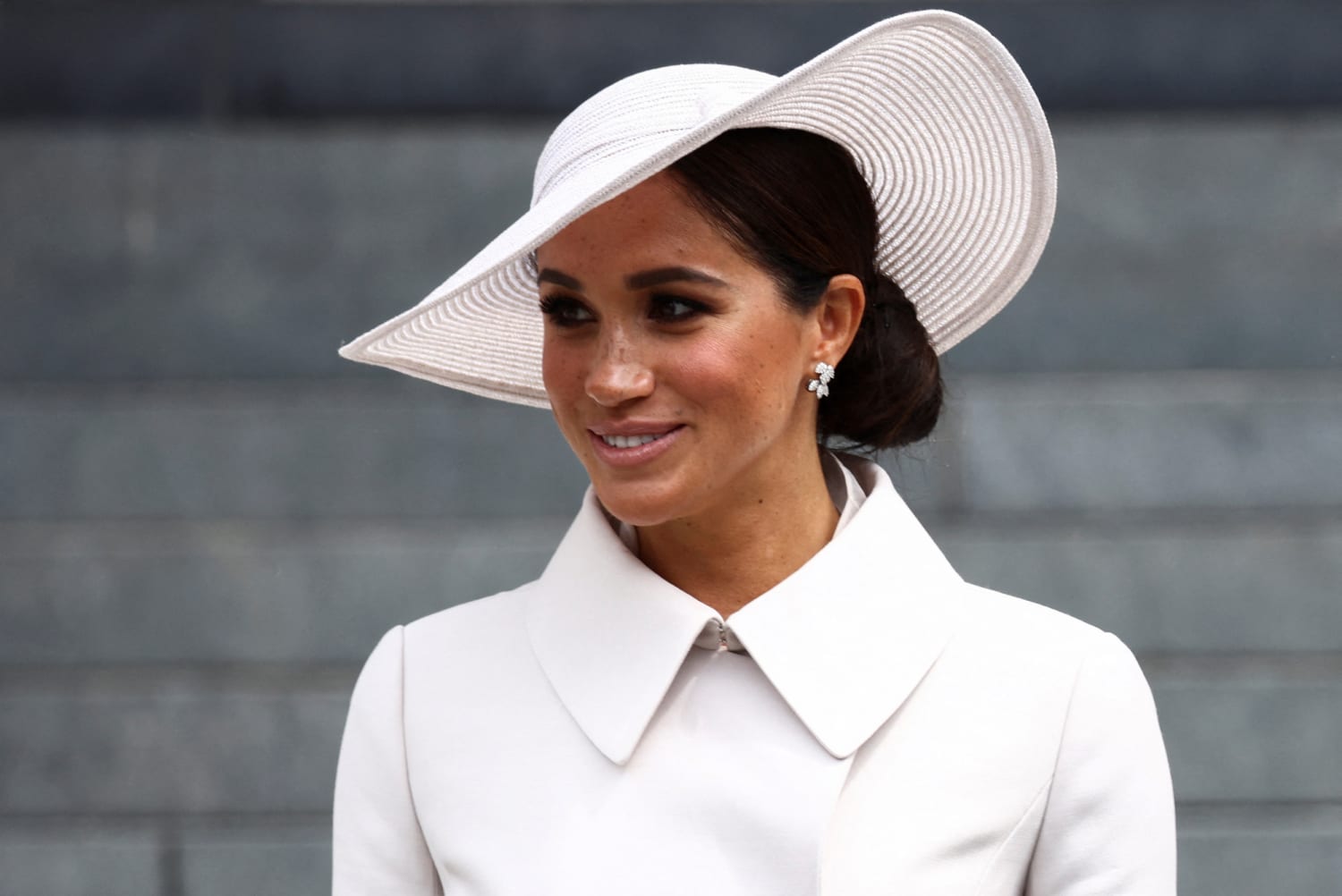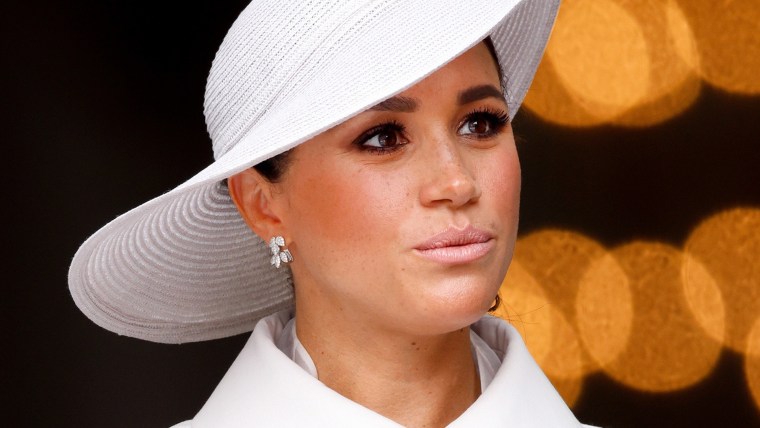Meghan Markle has launched a podcast, and on it she’s been getting real about how her race has shaped her experiences in life and with the royal family. On an episode released on Tuesday, she told singer Mariah Carey, who is also biracial, that she wasn’t treated as a Black woman until she started dating Prince Harry.
“If there’s any time in my life that it’s been more focused on my race, it’s only once I started dating my husband,” Markle said. “Then I started to understand what it was like to be treated like a Black woman because up until then, I had been treated like a mixed woman. And things really shifted.”
Having lighter skin has protected me in some circles, but it hasn’t meant that I never encounter racism.
Markle was saying something honest and important: acknowledging the privilege that can come with lighter skin at the same time that it doesn’t inoculate you from racism. Yet predictably, social media critics found it to be another opportunity to pile on the Duchess of Sussex. The heart of the outrage was the idea that she’s been embraced as a Black woman when as a biracial woman she’s had choices in her identity — and has seemed to use those choices to lead a white woman’s life.
While I can’t speak to most of Markle’s path as a successful actress who then married a member of the British royal family, I can relate to her experiences around race. Having lighter skin has protected me in some circles, but it hasn’t meant that I never encounter racism. It should be possible to understand that these circumstances can co-exist rather than cancel each other out, and that having gotten breaks in some cases doesn’t negate the entire existence of being a woman of color. I was glad to see Markle articulate that truth — but disheartened that the anger directed her way shows that many want to invalidate this reality.
The first time I realized what it meant to be Black was when I started kindergarten. Children often identify with colors, not race, and I believed I was white because I was lighter than my cousins. My mom was adopted, and she, my brother, and I are the lightest ones among our extended family. With that has come nicknames like white girl; as a youngster, I was Salt and my cousin Sharae was Peppa. My cousins wrongly told their friends that my dad was white.
“Look at your nose and your lips” was what my kindergarten classmate Linda retorted when I tried to identify with her whiteness. “You’re Black,” she snipped.
And Linda was right. As I grew up, and my nose and hips widened and my hair texture became more coarse, there was no denying that I was Black. However, with a blowout and no tan, my race hasn’t always been obvious. When I got older, I began to wonder if my appearance sometimes made me more acceptable in white spaces.
“White people aren’t threatened by your light skin,” is what a family member told me, though my white friends have attempted to refute that by pointing out positive attributes that make me approachable. One Black guy informed me that I was only pretty because I was light-skinned. Often in comments like these, it’s clear that others are more concerned about my skin color than I am — which I guess is a type of privilege, too, since I don’t have to always think about it.
The audacity of her thinking she’d be accepted as a member of the family is astounding, but maybe her proximity to whiteness in the U.S. hoodwinked her into thinking that she’d blend in.
While I learned an early lesson about race, some who have light skin only reckon with their Blackness later. By her own admission, Meghan was mostly able to be a bystander to racism because of colorism. She played the love interests of white men on TV, and she has a track record of dating and marrying white men.
Her trajectory has led some to accuse her of taking advantage of her privilege, whereas someone like Carey has made her Blackness known since day one. (By putting little thick Black girls in her music videos, for starters.)
At the same time, some are critiquing Markle’s podcast comments for the opposite reason. For all those criticizing her for falsely claiming a Black identity, there are others who are raising their eyebrows at Meghan’s disingenuousness at marrying a royal and then decrying racism.
This reproach has more merit, considering the family’s historic colonization and a purity complex that flows deep. Most Black people aren’t surprised at how she was treated. Maybe Meghan’s glasses were a little too rosy after falling for the most relatable royal since Princess Diana.
The audacity of her thinking she’d be accepted as a member of the family is astounding, but maybe her proximity to whiteness in the U.S. hoodwinked her into thinking that she’d blend in.
While we can roll our eyes at Meghan’s naivety, that doesn’t mean we can discount her experiences of racism. Oftentimes, light-skinned people and — even more so — biracial Black people are accused of putting themselves at the center of conversations about racism and colorism where they don’t belong. Yes, Black people with lighter skin or an ambiguous appearance may not experience what darker skin Black people do. Yes, there is still a pervasive paper bag test — using the bag’s shade as a way of measuring whether someone’s Black skin is acceptable. Actresses like Zendaya have acknowledged that it makes it easier for them to stay in the public eye while those with darker hues face more difficulty being taken seriously or receiving leading roles.
Still, even those of us who have the privilege of walking out more freely in the world and being less likely to be targeted because of race can expect to enter a place and be overwhelmingly aware of our hair texture and Afrocentric features. We can still be harmed by microaggressions and prejudices even if we’re not “like other Black people.”
It’s fair to criticize Meghan, but no matter how she viewed her Blackness prior to the last few years, it isn’t fair to try to invalidate her experience.
Source: | This article originally belongs to Nbcnews.com











